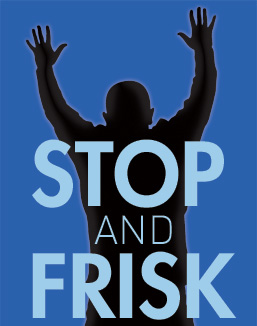The bane of this past election season were the self-appointed fact checkers. On every level, the fact checkers and their sycophants in the media were the ones who have been misleading the public on this issue. The current controversy over the “Stop and Frisk” policies of local police departments have drawn scrutiny because of highly publicized police shootings of minorities and the backlash of demonstrations and violence against police officers. This is a good time to explain the correct legal standards governing police encounters with civilians.
Before going any further, this correspondent must reveal that he is an attorney in South Florida, who has practiced primarily criminal law for 34 years. He regular files Motions to Suppress asserting Fourth Amendment grounds for excluding evidence in State and Federal Court. Notwithstanding this professional bias in favor of restricting the power of police officers to detain and search suspects, he recognizes that every community has a legitimate need for proactive police work to root out crime and confiscate weapons. The Courts have, and will continue to monitor on a case by case basis whether evidence seized as the result of Stop and Frisk will be admitted as evidence at trial.
The Fourth Amendment to the U.S. Constitution guarantees that people will be protected against unreasonable searches and seizures. The Courts enforce the Fourth Amendment by excluding the evidence seized pursuant to an illegal search and seizure. In Terry vs. Ohio, which was decided in 1968, the Supreme Court authorized police to frisk someone they had stopped if they had reasonable suspicion that person had committed a crime or was in possession of a weapon. Ever since, criminal court judges around the country have wrestled with the legality of each stop and frisk that resulted in an arrest. Procedural rules were set by these judges as well as Congress and all the State Legislatures.
In 1997, in the case of Wren vs. United States, the Supreme Court decided that a racial motivation for a stop, in that case the stop of an automobile, was immaterial under the Fourth Amendment if it was otherwise valid. In other words, even if the police were subjectively deciding to stop the person because he or she was black or other minority, the stop would still be valid provided there was reasonable suspicion that a crime had been committed, even if that crime was a mere traffic infraction.
In New York City, the boundaries of those so-called “Terry Stops” were pushed to the limit by policies enacted by the NYPD. As part of what became known as the “broken windows” policy, police were encouraged to stop and question people who were not breaking the law. Frequently, those stopped would be frisked for weapons or other contraband. Statistically, the clear majority of persons who were stopped and frisked were minority group members, and in almost 90% of the cases, no arrest was made.


Charlie, this is an interesting article and well written.
On a different manner, when Trump issued his executive order to stop the immigration from seven middle eastern countries, which was subsequently appealed by the ACLU, and a judge in New York partially stayed the original ruling, is this because the portion that was stayed was unconstitutional?
Also, with many world leaders against this closed immigration policy, such as Merkel and the new leader in Great Britain, do you find that this is an act against a religion, in this case, Islam? If so, isn’t that unconstitutional?
Keep the articles coming. They are very interesting.